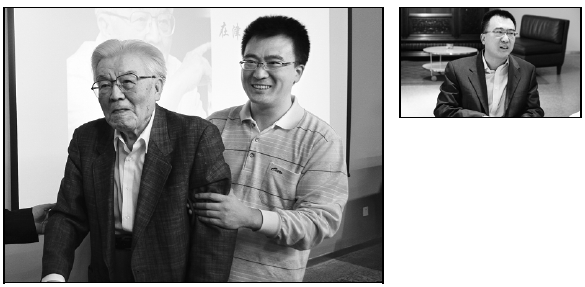The culture club

The earliest shuyuan, or academy of classic learning, could date back to the Tang Dynasty (618-907) in China.
For thousands of years, the academies have been key venues for ancient Chinese scholars to share their insights, brainstorm ideas and nurture spirituality.
Nowadays most of the ancient academies disappeared and some of the few well preserved ones, including the noted Yuelu Academy-built in 976-in Changsha, Central China's Hunan province, have been transformed into tourist attractions.
In Tianjin, the earliest ancient academy for classic learning, Wenjin Academy-built in 1751, but destroyed by the invaders of the eight alliances forces from foreign countries in 1900-has been silently revitalized and transformed.
According to a recent public ranking carried out over the past few years by the former Tianjin Press and Publication Bureau (which has now merged with the local publicity department), it has become the most popular free book bar in the city.
During its revitalization, it has inherited the tradition of boosting both Chinese and Western cultures, as Tianjin was once the earliest port opened to the West. The city has taken the lead in introducing Western cultures and educational approaches.
Foreign officials, too, have shown great interest in the revitalized academy.
French and Italian culture counselors frequently drop in to the academy and the institute of modern language research, Italian Friends, has published books with the collaboration of the academy.
Interestingly, Italian friends wrote the book in Chinese with the title From Concession to Italian Style Town with their "humble" Chinese calligraphy.
Italian scholars have also donated a number of books to the academy, while a Japanese expert shared findings from his research on The Analects of Confucius at a monthly forum at the center.
Wang Zhenliang, the founder of the revitalized Wenjin Academy, previously worked as a senior editor in the Supplements Department of Jinwanbao, or Today's Evening News.
The academy has a culture journal, Wenjin, which is published to explore the profound history of the city.
Wang, 47, who is now a professor of journalism at the Tianjin Normal University, said that the re-founding of the academy in 2013 was aimed at inheriting the ancient academy culture and to boost more international communication.
"In the beginning, my friends said the academy wouldn't survive for three years, but now it is already in its eighth year," he said.
He has no ambition to reap any profit from the academy, although it has been legally registered with local business and industrial authorities.
"Right now, it is quite like an NGO with loose organization. I have no bold plan for its future operation," he said.
He is only actively organizing seminars, inviting friends to lecture and publishing some journals and books.
However, over the past seven years, Wenjin Academy has made headline news, and attracted the attention of domestic scholars.
To date, the academy has published 100,000 books across nine series and it has organized some 70 forums-it's monthly event is regularly well-attended.
"I arrange the annual topic, mostly concentrating on an aspect of ancient Tianjin, which attracts scholars and people with a strong sense of nostalgia."
The Wenjin forum has become a must-attend event among the city's top culture and history scholars, with the circle growing to around 300 people-making the Xiangsi Creative Design Center, where Wenjin is located, arguably Tianjin's top cultural research community.
In fact, before the revitalization of the academy, Wang was already an iconic culture figure in the city.
He was the founder of an NGO tasked to protect Tianjin's intangible assets, the Tianjin Ancient Architecture Protection Association. It was the city's first cultural assets protection forum when it began in 2008, arousing nationwide attention.
He was the editor-in-chief of leading magazine Tianjin Memory and his stories were broadcast by overseas media outlets.
Despite his enthusiasm for its cultural legacy, Wang was actually not born in Tianjin, he was born in Gongzhuling, a small city in Northeast China's Jilin province.
He has profound passion for reading books and he graduated from the Chinese Language and Literature Department of the prestigious Nankai University.
His collection of during his university years numbered around 3,000 and has since increased to a staggering 40,000. Half of them are stored at Tianjin Normal University because of a lack of space at home.
The sustainability of the academy is due as much as anything to Wang's passion and the effort he puts into perfecting tiny details.
He invited leading Chinese seal cutter Qu Shilin and his counterparts to help carve the seal that would be engraved on academy's books and for 100th new book that bears the seal, "I will publish a collection of the artisan's works."
Currently Wang is writing books on Tianjin's connections with Japan and Italy.
"Sometimes, I think that sharing historical stories and common memories can inspire people's outlook," he said.
The academy was supported by his friend, Li Yunfei, the chairman of Tianjin Design Week and the founder of the academy's home, Xiangsi Creative Design Center in Tianjin.
"I only come to sit and have a cup of coffee in the bookstore," Li said.
Fang Jicai, a leading author born in Tianjin and promoter of cultural heritage preservation, said Wang's efforts to boost local culture by publishing books and setting up forums significantly boosts the popularity of local culture.
"The memory of a city is its soul and Wenjin has been committed to recording the city's memory," Feng said.

Today's Top News
- Ukraine says latest peace talks with US, Europe 'productive'
- Asia's rise and Europe's structural decline
- Economic stability a pillar of China's national security
- Xi taps China's deep wisdom for global good
- New rules aim for platforms' healthy growth
- Chinese web literature grows overseas






























